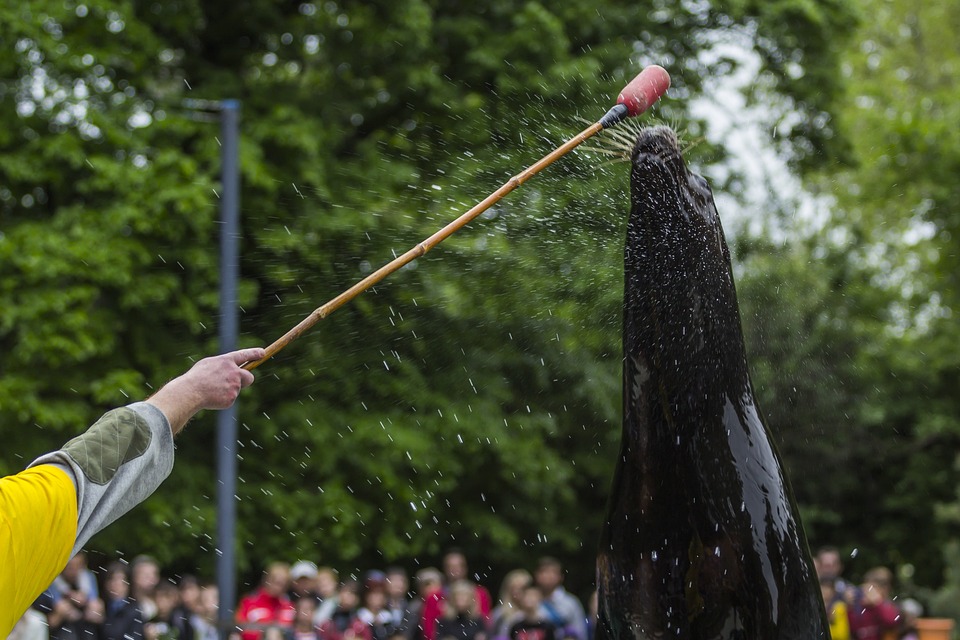Fish are fascinating creatures that captivate us with their vibrant colors, graceful movements, and mysterious behavior. While we may think of play as something exclusive to mammals and birds, fish also engage in playful behavior that not only brings them joy but also contributes to their overall well-being. In this article, we will delve into the intriguing world of fish behavior, uncover the benefits of play, and provide you with practical tips on how to encourage playtime for your aquatic companions.
Understanding Fish Behavior: Unlocking the Secrets of Underwater Playgrounds
Fish behavior is complex and diverse, varying greatly among different species. However, there are common patterns and behaviors that can be observed across many types of fish. Understanding these behaviors is essential in creating an environment that promotes play and encourages natural instincts. Here are a few key behaviors to consider:
1. Exploration and Curiosity: Fish are naturally curious creatures, constantly seeking out new environments and stimuli. They are known to investigate their surroundings, interact with objects, and explore every nook and cranny of their habitat.
2. Social Interactions: Many fish species are social animals and engage in various forms of social behavior, such as schooling, shoaling, or territorial interactions. Playful behavior can often be observed during these interactions, as fish chase each other, engage in mock battles, or engage in synchronized swimming.
3. Chasing and Hunting: Predatory fish exhibit playful behavior during hunting exercises, honing their predatory skills by chasing after prey or engaging in mock attacks. This behavior allows them to improve their agility, speed, and accuracy when it comes to capturing food.
4. Object Manipulation: Some fish species engage in playful behavior by manipulating objects within their environment. They may push around rocks, rearrange plants, or interact with toys or other objects placed in their tank.
The Importance of Play for Fish: Why Encouraging Playtime Matters
Playtime is not just for the amusement of fish; it serves several important purposes for their overall well-being. Here are a few reasons why encouraging play is crucial for your aquatic friends:
1. Stress Relief: Playful behavior helps fish relieve stress and anxiety, promoting a calm and peaceful environment. Engaging in play allows fish to release excess energy and reduce potential aggression or territoriality.
2. Mental Stimulation: By providing opportunities for play, fish are mentally stimulated, preventing boredom and promoting cognitive development. Just like humans, fish need mental challenges to stay sharp and active.
3. Physical Exercise: Playtime contributes to the physical fitness of fish. Swimming, chasing, and interacting with objects help them build muscle strength, improve agility, and maintain a healthy weight.
4. Enhanced Immune System: Regular play can boost the immune system of fish, making them more resilient to diseases and infections. When fish are stress-free and mentally stimulated, their immune responses are stronger.
Tips for Encouraging Playtime: Creating an Enriched Environment
Now that we understand the importance of play for fish, let’s explore some practical tips for encouraging playtime and creating an enriched environment for your aquatic companions:
1. Provide Hiding Places: Fish enjoy having hiding spots to retreat to when they feel the need for security or rest. Incorporate caves, plants, or other structures in the tank to create safe hiding places for your fish to explore and play around.
2. Introduce Tank Decorations: Add various decorations, such as artificial plants, rocks, or driftwood, to create a visually stimulating environment. These objects can serve as obstacles for fish to swim around or interact with, encouraging playful behavior.
3. Toys and Floating Objects: Consider adding fish-friendly toys or floating objects to the tank. These could include floating ping pong balls, small mirrors, or even fish-safe floating plants. These objects can pique their curiosity and initiate playful interactions.
4. Vary the Water Flow: Experiment with different water flow patterns in the tank. Gentle currents or strategically placed air stones can create movement, simulating natural underwater conditions and stimulating fish to swim and explore.
5. Feeding Challenges: Incorporate feeding challenges to engage your fish in playful hunting behavior. Use floating food puzzles or place food in different locations throughout the tank to encourage exploration and mental stimulation.
6. Aquarium Mates: Introduce compatible tank mates to encourage social interactions and playful behavior. Research your fish species carefully to ensure compatibility and avoid aggressive interactions.
Frequently Asked Questions (FAQs)
Q: Can all fish engage in playful behavior?
A: While not all fish display playful behavior in the same way mammals do, most fish can exhibit some form of playful behavior. It is essential to understand the specific behaviors of your fish species and provide an environment that encourages their natural instincts.
Q: How often should I engage my fish in playtime?
A: Playtime should be incorporated into your fish’s daily routine. Aim for at least 15-30 minutes of playtime each day, ensuring a balance between mental stimulation, physical exercise, and rest.
Q: Can fish become bored?
A: Yes, fish can experience boredom when their environment lacks stimulation or when they are kept alone without any companions. Providing an enriched environment and suitable tank mates can help alleviate boredom.
Q: Are there any risks associated with fish playtime?
A: While playtime is generally beneficial, it is essential to monitor your fish during play to ensure their safety. Avoid sharp or hazardous objects, maintain proper water quality, and prevent overcrowding in the tank.
Q: Do different fish species have specific play preferences?
A: Yes, different fish species may have different play preferences based on their natural behaviors. Researching the specific needs and behaviors of your fish species will help you create a tailored play environment.
In conclusion, understanding fish behavior and the importance of play provides valuable insights into how we can create a stimulating environment for our underwater companions. By incorporating the tips mentioned above and observing your fish’s behavior closely, you can encourage playtime, promote their well-being, and unlock the joy of underwater exploration for your aquatic friends.









